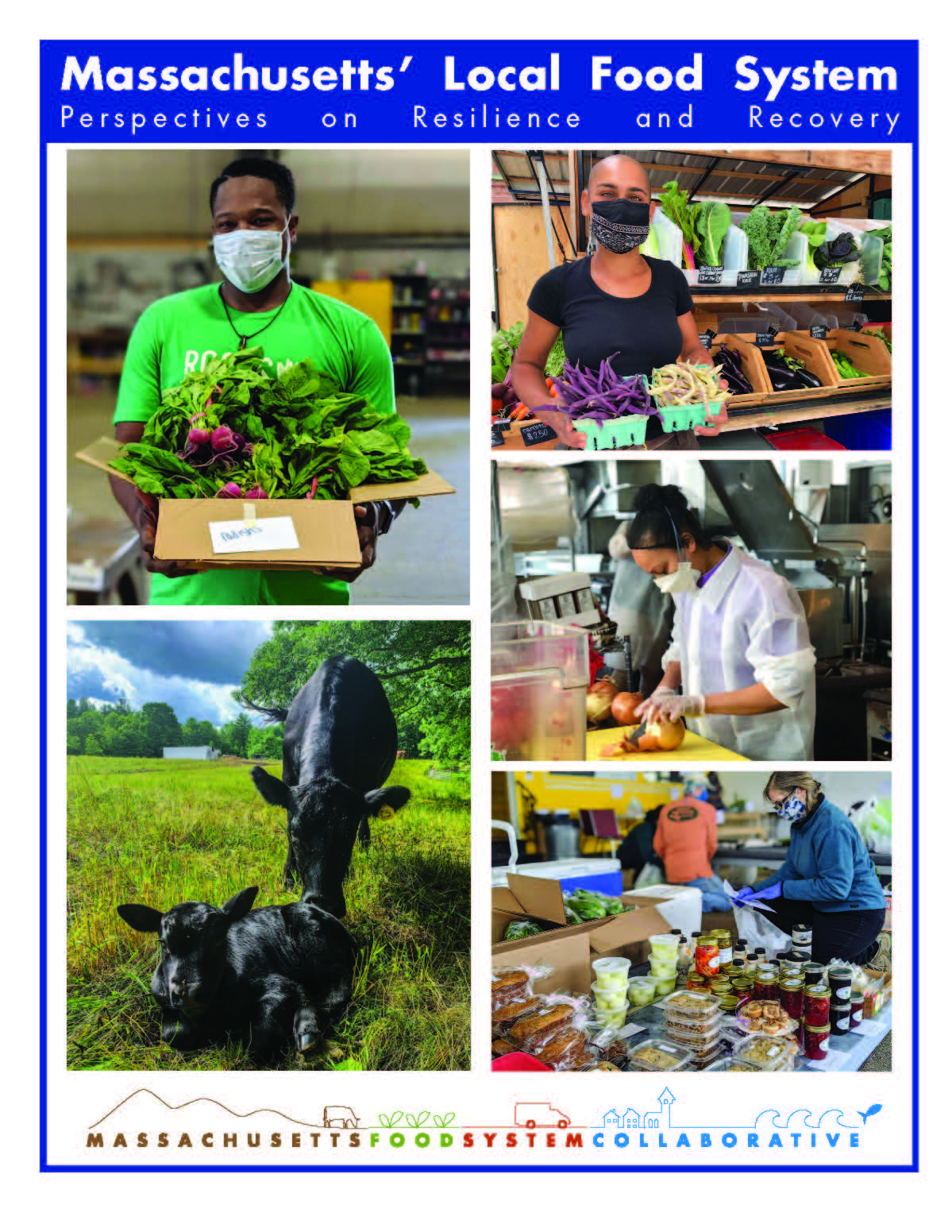
“Every bite each of us takes has been shaped by a complex range of forces, some in our control and others well outside of our control. By endeavoring to understand those forces better, and to play a more active role in influencing them, Massachusetts residents are working toward a food system that better meets the needs of everyone in the state.”
The COVID-19 pandemic has exposed many challenges within the food supply chain, and has illuminated the importance of a strong local food system to meet the needs of food producers and consumers not just during crises, but at all times. As the Commonwealth works to recover from the COVID-19 pandemic and to ensure that we are prepared for future crises, support for a resilient local food system is critical.
The Massachusetts Food System Collaborative has published “Massachusetts’ Local Food System: Perspectives on Resilience and Recovery,” presenting a set of challenges, opportunities, and recommendations toward an equitable, sustainable, and resilient local food system for the Commonwealth.
This means a local food system that closes the gaps caused by centuries of systemic racism that is visible today in Black, Indigenous, and people of color (BIPOC) people having less access to land to grow food, to food system jobs, to the power structures that shape the food system, and to food itself. It means a system that allows farmers, fishermen, and other food businesses to generate fair prices that allow for economic sustainability. It means one where workers are paid fairly, where natural resources are protected, and where healthy food is affordable and physically available for all. It means a local food system that can respond to meet needs in times of crisis. And it means increasing the amount of food produced and then consumed here in Massachusetts.
The report is based on dozens of listening sessions conducted during the summer of 2020 with hundreds of organizations around the state. Perspectives shared in the report include ideas for expanding access to SNAP, increasing nutrition education for children and families, and better supporting food is medicine programs, among others. Food production topics covered include the need for more resources for UMass Extension, the importance of setting benchmarks and goals for farmland protection, and thoughts on how state grant programs can better support the constituencies they are intended to serve. And recommendations throughout the report stress the need for concerted efforts to undo centuries of systemic racism with actions that move toward a more racially equitable food system.
It has been five years since the completion of the Massachusetts Local Food Action Plan. That Plan, commissioned by the Commonwealth and developed by stakeholders, laid out a set of goals and recommendations toward a sustainable and equitable Massachusetts food system. Some progress has been made toward the goals of the Plan, but at the same time many of its recommendations remain unaddressed.
With that in mind, the MA Food System Collaborative developed this document as an update that reflects current input about local food system needs that are particularly urgent at this time and some new or more specific ideas that have arisen in the last five years.